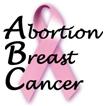Medical Establishment Adopts Joe Camel’s Strategy
The British and American medical establishments reacted to the publication of a study directly linking abortion with escalating breast cancer rates in Great Britain by denying that there is any proof of a link. The study which examined breast cancer rates in Britain, Finland, Sweden and the Czech Republic was conducted by the Populations and Pensions Research Institution, an independent group of statisticians, and found that women who procure abortions double their risks of the disease.
“Apparently, the medical establishment has decided to adopt Joe Camel’s strategy by asserting that there is no proof of a link,” said Mrs. Karen Malec, president of the Coalition on Abortion/Breast Cancer, an international women’s group. “This is an impossibly high bar to set for any risk factor, especially for one called a ‘choice.’ Doctors know that absolute proof cannot be obtained without doing unethical experiments on women.”
“In an article published in the British journal, Lancet Oncology, author Tim Davidson, MD a breast surgeon at Royal Free Hospital, London, tells women not to worry their pretty little heads,” reported Mrs. Malec. “He reminds physicians that one of the tenets of the Hippocratic Oath is ‘First, do no harm,’ but then he proceeds to do just that. He suggests there is no ‘consistent and conclusive’ proof of a link, although he acknowledges the protective effect of childbirth and young age at first birth. He labels informing women about the research ‘unnecessary cruelty,’ but real cruelty isn’t obtaining informed consent from patients. Rather, it’s willfully causing tens of thousands to die and to experience disfiguring surgery, chemotherapy, radiation and emotional upheaval through an act of omission. It’s causing thousands of children to experience the loss of their mothers.” [Lancet Oncology (2001) 2:756-58]
Mrs. Malec reported, “In 1986 four epidemiologists, including Bruce Stadel of the National Institutes of Health and Phyllis Wingo of the Centers for Disease Control, published a letter in Lancet and said, ‘Induced abortion before first term pregnancy increases the risk of breast cancer.’ [Feb, 1986, p. 436] British and American scientists knew then that abortion caused breast cancer and never told women.”
Wingo later back pedaled during her employment with the American Cancer Society. She authored a 1997 review in which she called the research “inconsistent” and said she could reach “no definitive conclusions.” By 1997, ten more studies had implicated abortion, and eight were statistically significant. [Cancer Causes Control, 8:93-108] Wingo’s own data showed increased risk. [Joel Brind, Ph.D., Abortion-Breast Cancer Quarterly, Winter 2000, Vol. 3, No. 4, p. 5]
Joann Schellenbach, national director of medical and scientific information for the Society, told Web MD on December 5, 2001 that "...it is not possible to give guidance one way or the other because the evidence from scientific studies doesn't justify it." The Society and Web MD rely on the egregiously flawed 1997 Melbye study which is used by the abortion industry as propaganda to falsely persuade women that abortion is safe, although 28 other studies have concluded otherwise.
“The Society lists childlessness, delaying childbirth until after age 30 and a lack of breast feeding as risk factors for breast cancer,” said Mrs. Malec, “but, logically, a childless woman who aborts a pregnancy is delaying her first full term pregnancy and increasing her breast cancer risk. She can’t breast feed unless she becomes pregnant again. Abortion, obviously, is a well-protected industry.”
A press release issued by the Royal College of Obstetricians and Gynecologists (RCOG) on December 4, 2001 said, "We reiterate our advice to women that no causal link between abortion and breast cancer has been proven and that this report should not influence women in making decisions about abortion at difficult times in their life."
Just last year, the RCOG issued a press release containing Evidence-based Guideline# 7 which warned abortion practitioners that the ABC research “could not be disregarded.” [RCOG Press, p. 29-30] When the British press got wind of it in August of 2000 and the heat was turned up, the RCOG quietly removed this guideline.
These views contrast sharply with those of Dr. Stuart Donnan, former editor-in-chief of the British Medical Association’s Journal of Epidemiology and Community Health, who opined, “It will surely be agreed that open discussion of risks is vital and must include the people - in this case the women concerned. I believe that if you take a view (as I do), which is often called pro-choice, you need at the same time to have a view which might be called ‘pro-information,’ without excessive paternalistic censorship (or interpretation) of the data.” [editorial (1996) 50:605]
Mrs. Malec argued, “Medical experts have been quietly debating for many years whether or not to keep women in the dark about the existence of the studies,” said Mrs. Malec, “but they don’t want to deal with the inevitable wrath of women and the lawsuits which will be filed when it’s learned that abortion isn’t the safe procedure that we’ve been led to believe. The abortion business is too lucrative for doctors to give it up.”
Mrs. Malec added, “This isn’t the first time that organized medicine has been more worried about protecting the financial interests of doctors than the interests of patients. In 1964 the American Medical Association (AMA) didn’t want smokers warned about the tobacco-cancer link on cigarette packs either. The AMA entered into an agreement with the tobacco industry to oppose warnings because it had accepted $10 million from six tobacco companies to do research and because it sought the support of legislators from tobacco states to vigorously oppose Medicare legislation.”
“Women have the right to know the truth about this optional surgical procedure, even if only one study linked abortion with breast cancer,” said Mrs. Malec. “We call on the medical establishment to stop suppressing the research and let women decide for themselves whether or not to assume this risk.”
The Coalition on Abortion/Breast Cancer is an international women’s organization founded to protect the health and save the lives of women by educating and providing information on abortion as a risk factor for breast cancer.

